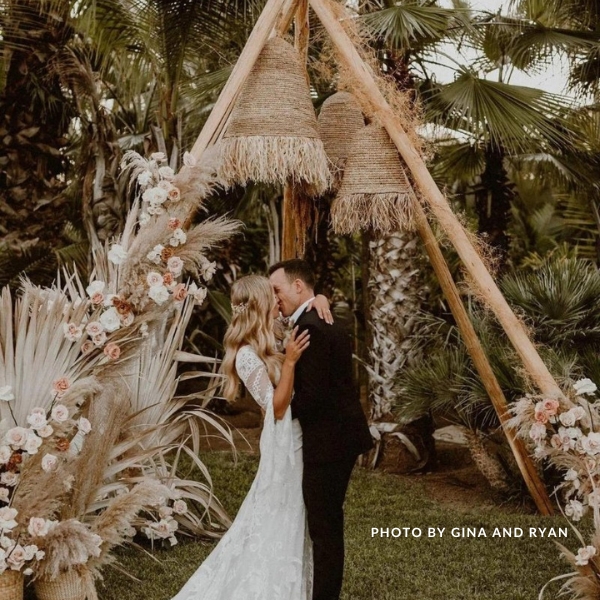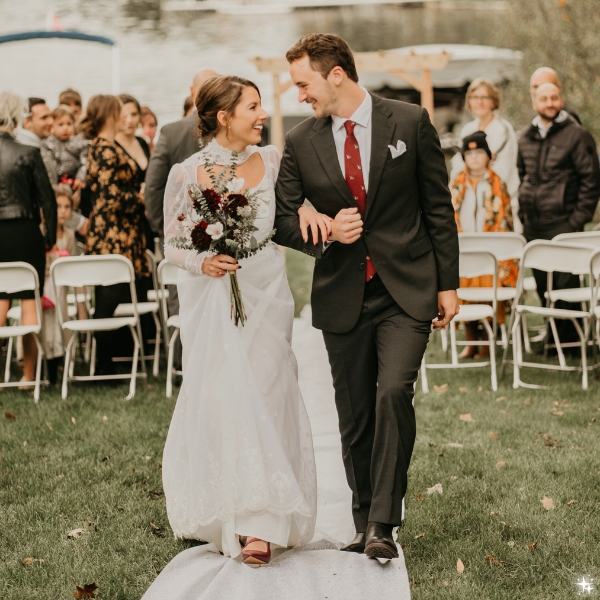How To Handle Wedding Vendor Contracts How to Navigate Wedding Vendor Contracts with Ease. Vendor Contracts Made Simple: What to Look Out For. Everything You Need to Know About Wedding Vendor Contracts.
Navigating vendor contracts can feel overwhelming, but with a little guidance, you’ll be signing those dotted lines with confidence. Let’s break down what you need to look out for, whether you need a lawyer, and how to ensure your big day goes off without a hitch.
How To Handle Wedding Vendor Contracts
When you receive a vendor contract, the first thing you should do is read it thoroughly. Pay close attention to the details such as the scope of services, payment terms and schedule, cancellation policies, and any additional fees that may not have been discussed.
Make sure everything you agreed upon verbally is included in the contract—if it’s not in writing, it’s not guaranteed. Also, look for any clauses that might seem confusing or too one-sided in favor of the vendor. These details are critical because they define exactly what you’re paying for and what you can expect.
Do You Need a Lawyer to Look Over the Contract?
While you don’t always need a lawyer to review every vendor contract, it’s a good idea if the contract is lengthy, filled with legal jargon, or if you’re unsure about any of the terms. A lawyer can help you understand the implications of the contract and identify any potential red flags.
Also, if you are dealing with a large amount of money, you or your family probably already have a lawyer who reviews most of your contracts and this will be very helpful.
If you’re comfortable with contracts and have a clear understanding of what’s being offered, you might feel confident handling it on your own. However, for high-stakes contracts like the venue or catering, it’s worth considering professional help to avoid any surprises down the line.
RELATED: How To Review Wedding Contracts: Everything You Need To Know
What Are the Red Flags?: How To Handle Wedding Vendor Contracts
Red flags in vendor contracts can include vague language, hidden fees, and strict cancellation policies. Be wary of any clauses that limit the vendor’s liability excessively or require full payment well before the service is delivered.
Another red flag is a vendor who refuses to make adjustments to the contract when reasonable concerns are raised. If a vendor is inflexible or unwilling to clarify terms, it might be a sign to look elsewhere. Always trust your instincts—if something doesn’t feel right, it’s worth investigating further.
PRO TIP: Contract adjustments are still within reason. There are parts of the contract that cannot be altered mainly because of insurance and liability concerns. This is why when you have a good communication channel with your vendor, these things are discussed professionally. Just make sure that you discuss these concerns before signing.
Can You Negotiate the Contract?
Yes, you can—and should—negotiate vendor contracts. If there are terms that make you uncomfortable or that you want to be more favorable, don’t hesitate to ask for changes. This could include payment schedules, the scope of services, or cancellation terms.
Most vendors are willing to negotiate, especially if they want your business. Just be sure to get any agreed-upon changes in writing to ensure there’s no confusion later on. Remember, it’s your wedding, and the contract should reflect your needs and expectations.
How Will the Contract Affect the Wedding Service?
The contract is your safety net, ensuring that the vendor delivers exactly what they promised. It outlines the services, timeline, and payment terms, so there’s no ambiguity on your wedding day.
A well-drafted contract protects you if something goes wrong, as it clearly defines what’s expected from both parties. If a vendor fails to meet the terms of the contract, you have a legal document to back you up in any disputes. This makes it easier to resolve issues quickly and fairly.
PRO TIP: There is also such a thing as “too much guarantee.” For example, FORCE MAJEURE is something that you would always see in a contract and would actually want to see.
Bloomberg Law described force majeure as typical events that include natural disasters (fire, storms, floods), governmental or societal actions (war, invasion, civil unrest, labor strikes), and infrastructure failures (transportation, energy).
Now, as you can tell, if the roads are closed, there is obviously no way anyone can go anywhere. Having this on your contract is also a reflection of how your vendor has a contract that is mostly likely from a professional service – meaning, they have also worked with a lawyer. This means they take their business seriously and are honest to their clients.
RELATED: How Do We Find Reputable Vendors
Can You Sue If the Wedding Contract Is Not Honored? : How To Handle Wedding Vendor Contracts
Yes, you can sue if a vendor fails to honor the contract, but it should be a last resort. Before taking legal action, try to resolve the issue directly with the vendor.
Depending, on the contract, the process of how to “solve” can be listed in the contract as well. Usually what the process of arbitration looks like and who gets to pay for what and so on.
Again, this doesn’t usually apply to everything, for larger contracts that have a much larger scope, these things will be mentioned.
If that doesn’t work, mediation or arbitration might be a quicker and less expensive alternative to going to court. However, if the vendor’s breach of contract is severe and you’ve exhausted other options, suing may be necessary to recover damages. Keep in mind that the outcome of a lawsuit can be unpredictable, so it’s best to try and settle disputes amicably whenever possible.
What Are the Benefits of Having a Contract?
Contracts are essential for protecting both you and the vendor. They provide a clear agreement on what services will be provided, when they will be delivered, and how much they will cost.
Wedding contracts also give you legal recourse if the vendor doesn’t fulfill their obligations. For the vendor, a contract ensures they get paid for their services and have a clear understanding of what’s expected from them. In short, contracts create a foundation of trust and professionalism, helping to ensure that your wedding day goes smoothly.
What You Really Need To Know: How To Handle Vendor Contracts
Handling vendor contracts might seem daunting at first, but it’s all about being thorough and making sure everything is clear. By knowing what to look out for, considering professional help when needed, and not being afraid to negotiate, you can protect yourself and ensure your wedding day is everything you’ve dreamed of.
Going through wedding vendor contracts is a crucial part of your wedding planning process. Always make sure to thoroughly read each wedding vendor contract, paying special attention to important terms like services provided, payment schedules, and cancellation policies. Don’t forget to ask about a force majeure clause, which covers unexpected events that could impact your wedding day. Using a credit card for payments offers extra protection in case something goes wrong with a vendor. For destination weddings, ensure the wedding venue and vendor contracts are clearly outlined and specific to your needs. Contracts aren’t just legal documents—they help safeguard your vision for the big day. Take the time to review them carefully and ask questions if anything isn’t clear. Your careful planning will ensure smooth coordination with your vendors, leaving you stress-free and excited for your special event.
Remember, a good contract is a partnership between you and your vendor, paving the way for a stress-free and memorable celebration!











